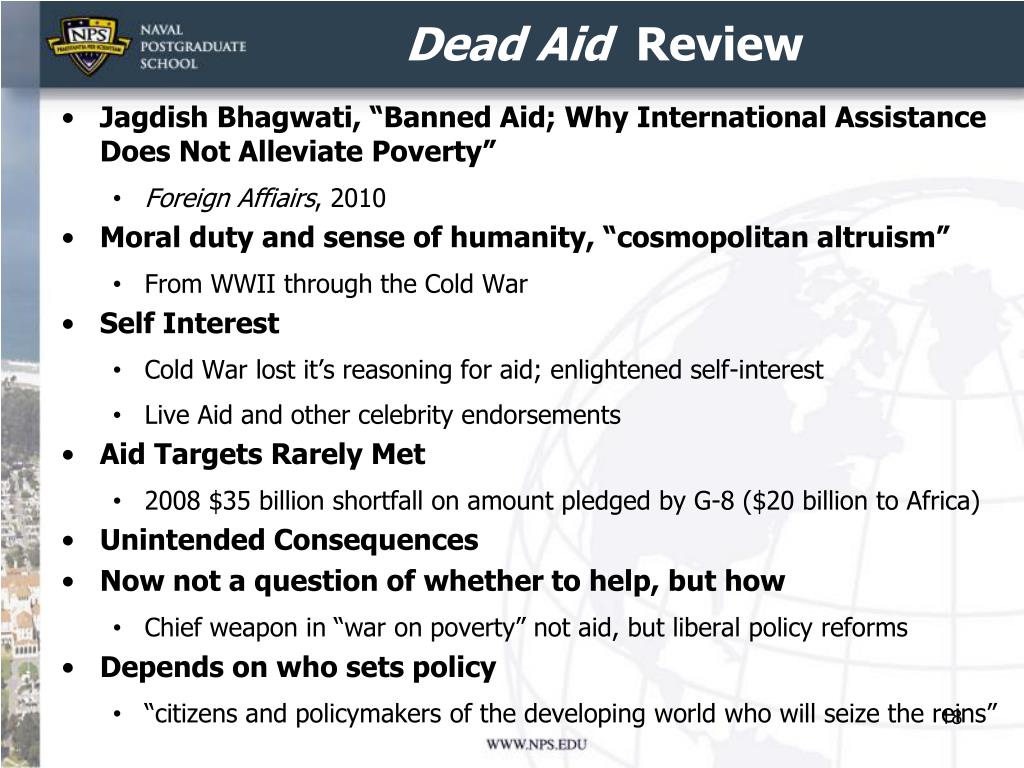
Add a dose of microfinance, some remittances from the growing African diaspora and some borrowing on the international bond market - and hey presto! Moyo insists it really is that simple. Cut the aid flows and, with help from China, African economies will boom and there will be good governance. In one of the most unconvincing sections, she argues that it is aid which causes corruption and conflict, and aid which inhibits social capital and foreign investment. She believes in the private sector and free enterprise. Why has there been so much civil war and so many corrupt dictators? Why is it that Ghana and Singapore had roughly the same income levels in the 1950s, and are now poles apart? The keys to success in many Asian countries were the role of a strong, interventionist state that nurtured industry and an elite who invested in their own country: both have been missing in many African countries, where elites have exported capital to western bank accounts and pursued ruinous policies.īut Moyo is not interested in the role of the state. Time and again, she fails to grapple with the single biggest factor determining the poverty of the continent - how the state functions, and has failed to function. This is Moyo at her weakest she is an economist by training and her grasp of the political economy of Africa is lamentable. But by the next paragraph, Moyo is already on to racism and Max Weber's analysis of Protestantism and capitalism. The partitioning of Africa at the 1884-85 Berlin conference "did not help matters". Yes, but perhaps Saudi's vast oil reserves and tiny population, and Switzerland's position as a banking centre at the heart of Europe, are part of the explanation? Relevant here would have been Paul Collier's analysis of the role of geography in his recent book The Bottom Billion: Why the Poorest Countries are Failing and What Can Be Done About It, but he only makes it into the bibliography.Ĭolonialism is treated similarly.

There are so many generalisations skidding over decades of history, such frequent pre-emptory glib conclusions, that it is likely to leave you dizzy with silent protest.įor example, in a breezy overview of explanations for Africa's economic backwardness, Moyo turns to the harshness of the continent's geography and points out that "Saudi Arabia is rather hot, and of course, Switzerland is landlocked, but these factors have not stopped them getting on with it". The result is an erratic, breathless sweep through aid history and current policy options for Africa, sprinkled with the odd statistic. One suspects that behind this book is a remarkable woman with an impressive career and very little time for learning how to write a good book.


The author, Dambisa Moyo, worked for Goldman Sachs (a fact about which the dust jacket is strangely coy) after a stint at the World Bank and a doctorate at Oxford.


 0 kommentar(er)
0 kommentar(er)
